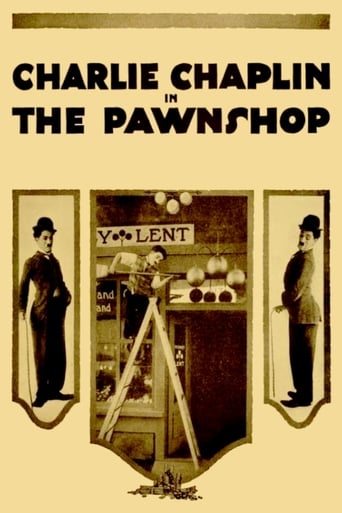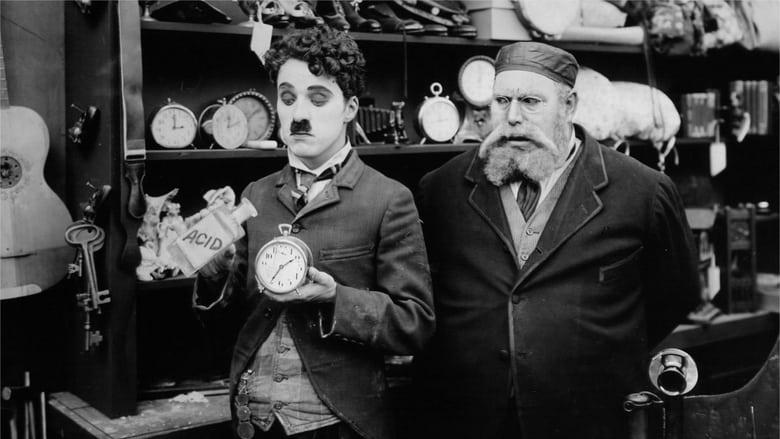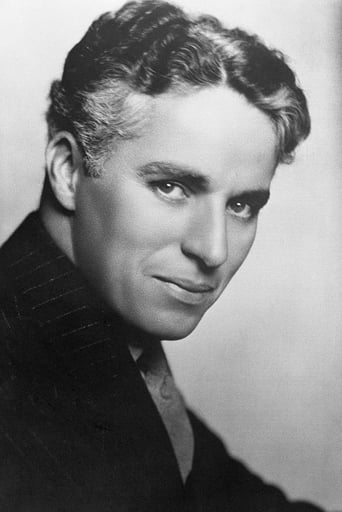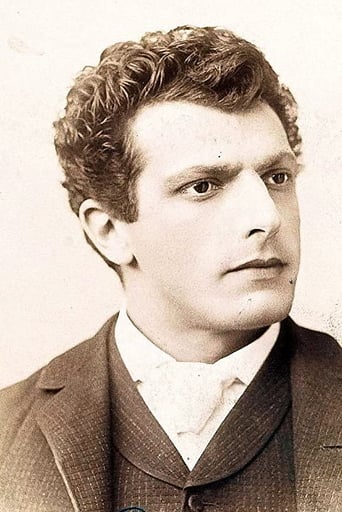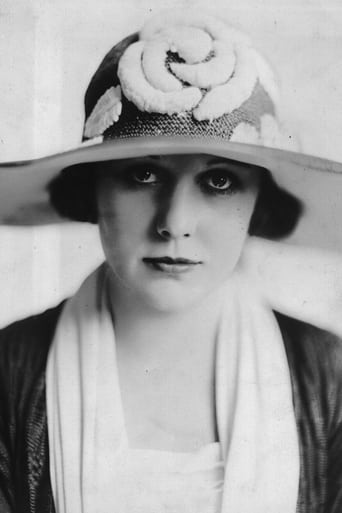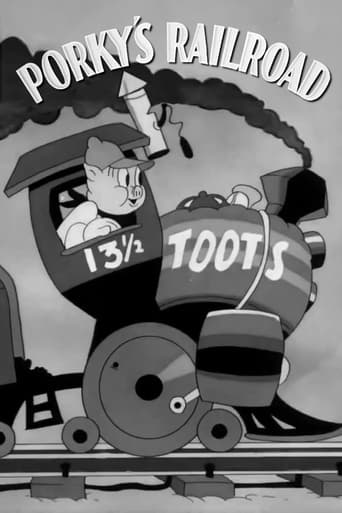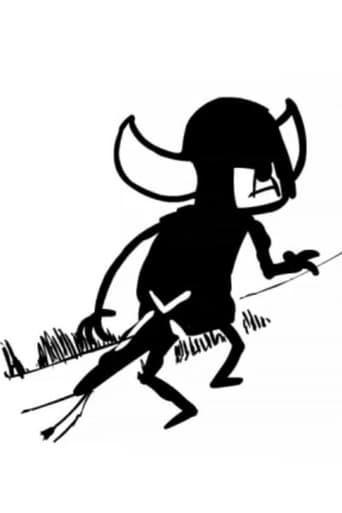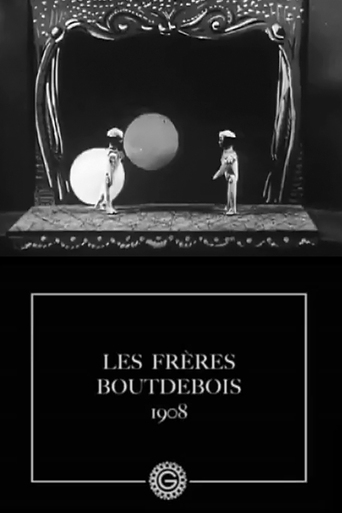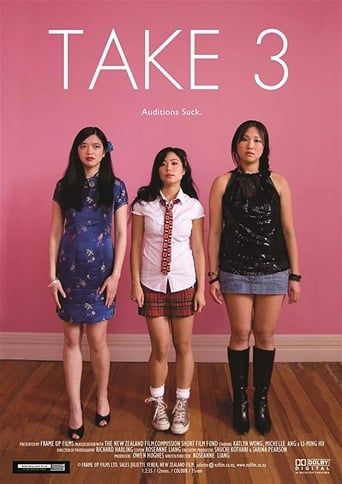The Pawnshop (1916)
A pawnbroker's assistant deals with his grumpy boss, his annoying co-worker and some eccentric customers as he flirts with the pawnbroker's daughter, until a perfidious crook with bad intentions arrives at the pawnshop.
Watch Trailer
Free Trial Channels
Cast


Similar titles
Reviews
What makes it different from others?
Highly Overrated But Still Good
Excellent characters with emotional depth. My wife, daughter and granddaughter all enjoyed it...and me, too! Very good movie! You won't be disappointed.
This is a dark and sometimes deeply uncomfortable drama
Charlie Chaplin is at it again in another comedy short for which he wrote, directed as well as starred in THE PAWNSHOP (Mutual/Lone Star Studios, 1916). Following the pattern of working man comedies for the studio starting with THE FLOORWALKER (1916) and THE FIREMAN (1916) followed by occasional drifter characters as in THE VAGABOND (1916), for his sixth Mutual comedy, he's back in the working force again, this time in a pawn shop creating havoc under the watch of nameless characters as his employer (Henry Bergman), the employer's daughter (Edna Purviance) and fellow co-worker (John Ran, resembling silent comic Chester Conklin) with whom he shares a kicking contest from time to time in the seats of their pants.The plot is a slight one consisting of runabout gags in the usual Chaplin tradition. After arriving late for work, Charlie begins his new day of antics as using a duster on a fan that's still in motion, shifting the latter back and forth, unintentionally hitting those around him, particularly his co-worker (John Rand) and his employer (Henry Bergman), to dust off the ornamental fixtures outside the pawn shop as observed by a policeman (Frank J. Coleman). Nearly getting fired, Charlie is given a second chance, making an impression with the boss's daughter (Edna Purviance), later coping with oddball customers at the front counter, including an out of work actor (James T. Kelly) with a hard-luck story; another (Albert Austin) wanting two dollars as a trade in for his alarm clock; an elderly woman (Charlotte Mineau) wanting something for her gold fish bowl; and a jeweler (Eric Campbell) wanting to see some diamonds for purchase, unaware to all (except for the viewer reading the title card identifying him as "A Crook") that he's there to rob the place.An extremely funny comedy, with one of the highlights being that from Albert Austin, the man with the alarm clock. He really doesn't do anything but just stands there, watching Charlie playing doctor as he checks over the clock with a stethoscope, resulting to a hilarious scene close. Somehow, these few minutes between Chaplin and Austin is as good as it gets. Another moment of funny business has Charlie helping Edna in the kitchen by passing plates and cups to dry through a clothes wringer. Surprisingly, Eric Campbell, the giant-size adversary usually part of Charlie's antics, gets little screen time, making his first appearance very late into the story. In spite of his limitations, Campbell makes every moment of his count where laughs are concerned. Henry Bergman, (no relation to Ingrid or Ingmar), resembling some cast member from "The Jazz Singer" in his Hebrew garb, doing what he does best as part of Chaplin's stock company of players.A laugh fest at best that, along with Chaplin's other Mutuals, THE PAWN SHOP has circulated on public television in the sixties and seventies with musical soundtrack with sound effects lifted from early 1930s reissue prints, prints that have been available to home video in the 1980s and 90s by Blackhawk and/or Republic Home Video, or original scoring for commercial television for "Charlie Chaplin Comedy Theater" that originated in the 1960s. In later years, THE PAWN SHOP has become available on DVD, namely KINO Home Video with new orchestration and at longer length (28 minutes) through silent speed projection, the print occasionally shown on cable television's Turner Classic Movies (TCM premiere: December 13, 1999). So if anyone has anything to pawn, particularly a clock once belonging to Albert Austin, take it to Charlie's pawn shop, and then go seek professional help. Next Chaplin Mutual comedy: BEHIND THE SCREEN (1916). (***)
One of Charlie Chaplin's really early movies casts him as a pawnshop employee who, through no fault of his own, has a tendency to make a mess of everything. The whole thing is a riot, especially the sequence with the ladder. I think that it was a few years later when Chaplin started incorporating social themes into his movies. In the meantime, the man known as the Tramp knew exactly how to show some absolutely hilarious stuff. The daughter is played by Edna Purviance, who was probably his most frequent co-star, appearing in his movies as late as the '50s.All in all, if we appraise "The Pawnshop", it's worth a whole lot! Just plain fun.
Charlie Chaplin's sixth film for Mutual is one with very high highs and disappointingly low lows. It features a scenario and story which doesn't really go anywhere but also features several moments of slapstick that are amongst his best to date.Chaplin stars as a pawnshop assistant and gets in a long running fight with fellow employee John Rand. Typically inept at his job, Chaplin is eventually fired only to be taken back on straight away after his boss Henry Bergman has a change of heart. Meanwhile Chaplin's attentions are drawn to Bergman's daughter Edna Purviance who is busy baking in the back of the shop. Trouble appears late on as a thief, Eric Campbell enters the shop intent on taking it for everything it's got.As I mentioned the plot is a little basic here. There is no character development and the romantic component is only hinted at. Where the film is successful is with its slapstick elements. Two areas stand out for me. The first is Chaplin's long fight with John Rand. Chaplin portrays a peculiar but extremely funny fighting style and his character in general looks like he's off his head on something. The standout though is while the fight is happening; Edna Purviance hears the ruckus and comes to investigate. Although Chaplin is beating Rand to a pulp, when he hears Edna approaching he falls to the floor and into a foetal position, faking pain. Edna immediately starts yelling at Rand for hitting the poor, defenceless Chaplin and while she does so Chaplin repeatedly checks out her bum and turns to the camera with a cheeky grin on his face. It's a fantastic scene.Other great moments include Chaplin being ordered to wash up and putting the crockery through a mangle and a scene in which he values a clock by taking it to pieces, destroying it and then turning it down as it's broken. Moments like these remind me just how inventive and clever Chaplin was capable of being with his comedy. It's just a shame here in The Pawnshop that the comedy isn't coupled with a more impressive plot.www.attheback.blogspot.com
Monday September 17, 7:00 pm, The Paramount Theater A pawnshop employee (Charles Chaplin) arrives late for work and spends most of his day fighting with a co-worker. He is discharged by the pawnbroker (Henry Bergman), re-hired, and flirts with the boss's daughter (Edna Purviance) while wrestling with her cast-iron doughnuts. Despite his housecleaning efforts, he leaves the place a bigger mess than before he started. On the verge of being fired again, Charlie redeems himself when he knocks out a thief (Eric Campbell) about to rob the shop.The sixth of twelve shorts produced by Chaplin for the Mutual Film Corporation, The Pawnshop makes brilliant use of props in a variety of humorous situations. When he disassembles a customer's (Albert Austin) alarm clock and winds up the empty case, the parts magically re-animate as they lie on the counter, and no one is left standing when Charlie attempts to negotiate the doorway and sidewalk with an eight-foot ladder.

